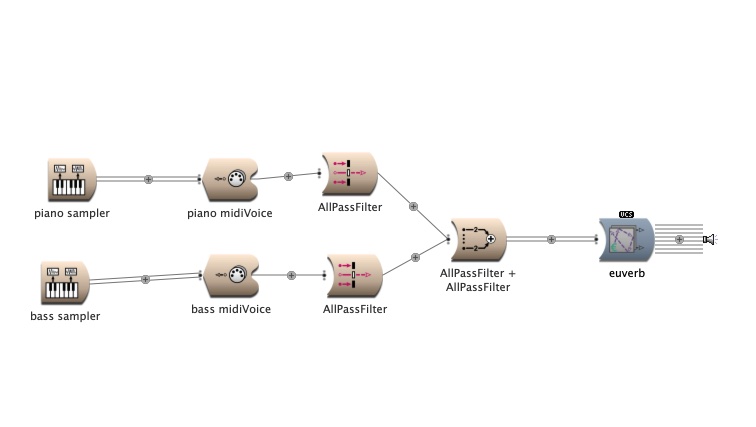Hi all.
i'm trying send midi data from a python script to Kyma to trigger 2 KBD samplers.
I'm currently sending over osc but there seems to be a couple of problems:
1) latency (the delay is roughly 0.25 seconds)
2) midi channel number seems to be ignored.
I am currently sending osc data as /key, [channel, on/off, note, velocity, timbre] e.g. /key, [1, -1, 62, 0.8, 0.8]. with "port = 8000 ip = "169.254.84.113"
At the Kyma end, the osc is being logged and mapped. In the image I have 2 samplers 1 for piano (source MIDIInput, channel 1), and bass (source MIDIInput, channel 2), each with a different midiVoice set to independent channel. However, when i send it osc for each channel only the piano channel (1) is played.
Questions:
1) Why the latency? How to improve? Should I send raw midi data over OSC?
2) Why the midi channels are not being considered and routed to the specific MidiVoice
TIA
Craig
